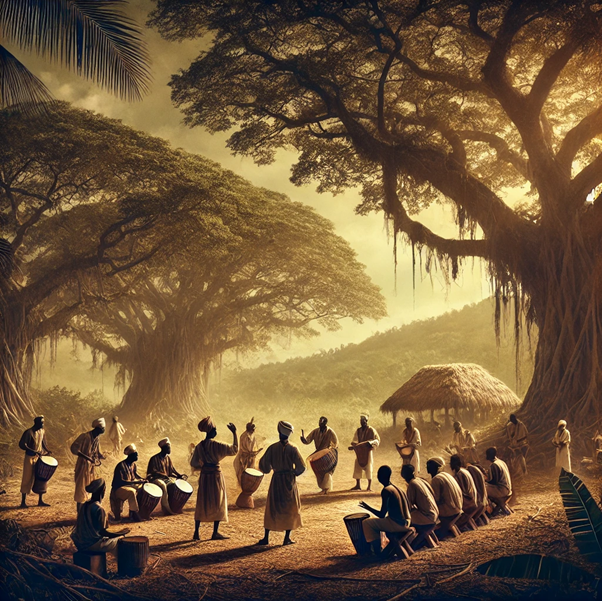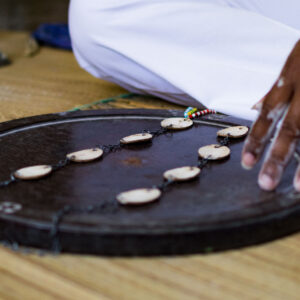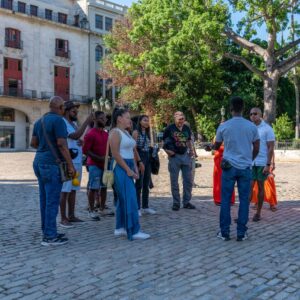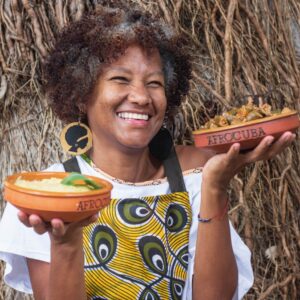
From the 16th to the 19th century, Cuba was a major hub in the transatlantic slave trade. Over 600,000 Africans were forcibly brought to the island, primarily from West and Central Africa, including the Yoruba, Congo, and Arará ethnic groups. These people arrived with not only their languages, customs, and art, but also their spirituality—the belief in Orishas, ancestors, and a connection to nature that formed the backbone of their existence.
Yet, practicing these traditions openly was dangerous. Under the watchful eye of colonial rulers, enslaved Africans found themselves pressured to adopt Catholicism. But rather than abandon their beliefs, they cleverly disguised their African deities behind the veil of Catholic saints, resulting in the beautiful syncretism we see today in religions like Santería.
It was a brilliant act of resistance: a way to hold on to their identity while outwardly conforming to the demands of their captors. In essence, African spiritual traditions didn’t just survive in Cuba—they evolved.
One of the key institutions that allowed African spirituality to endure was the cabildo, a mutual aid society where African communities gathered to preserve their cultural and religious practices. These spaces became sanctuaries for the performance of sacred rituals, drumming, and dancing, all while strengthening communal ties. The cabildos kept alive the flame of African identity, ensuring that these spiritual practices were passed down through generations.
Today, the influence of these cabildos can still be felt in the vibrant Afro-Cuban religious ceremonies, music, and festivals that continue to be a vital part of Cuban life.
Despite the abolition of slavery in Cuba in 1886, Afro-Cuban spirituality remained marginalized, seen by many as inferior to Catholicism and other dominant religions. Yet, these beliefs persisted in the hearts of the Afro-Cuban people, subtly influencing Cuban culture in profound ways—from the rhythms of Cuban music to the way people interact with nature and the divine.
With the Cuban Revolution in 1959, Afro-Cuban culture experienced a resurgence. Afro-Cuban music, dance, and spirituality were celebrated as integral parts of Cuba’s national identity. Festivals like the Festival del Caribe in Santiago de Cuba and religious events honoring Orishas are now annual celebrations that blend faith and culture, drawing people from around the world to witness the power of these living traditions.
Today, Afro-Cuban spirituality is much more than a relic of the past. It is a living, breathing tradition that continues to shape everyday life in Cuba. From the beat of the batá drums in religious ceremonies to the offerings placed on altars in homes across the island, these practices provide a link between the material world and the spiritual, connecting believers to their ancestors and the Orishas who guide them.
The ability of these spiritual practices to not only survive but thrive, despite centuries of oppression, speaks to their deep power and significance. Afro-Cuban spirituality continues to offer strength, guidance, and healing to those who seek to honor their roots and embrace a deeper connection with their heritage.
This article only scratches the surface of the incredible journey that African spiritual traditions have taken in Cuba. Want to learn more about the Orishas, the rituals, and how you can incorporate these practices into your own life?
Download Reclaiming Roots: A Traveler’s Guide to Afro-Cuban Spirituality and Culture now and embark on a deeper exploration of these sacred traditions. In the guide, you’ll uncover:
Are you ready to reclaim your roots and embrace the powerful legacy of Afro-Cuban spirituality? Click here to download the guide and begin your journey today.



